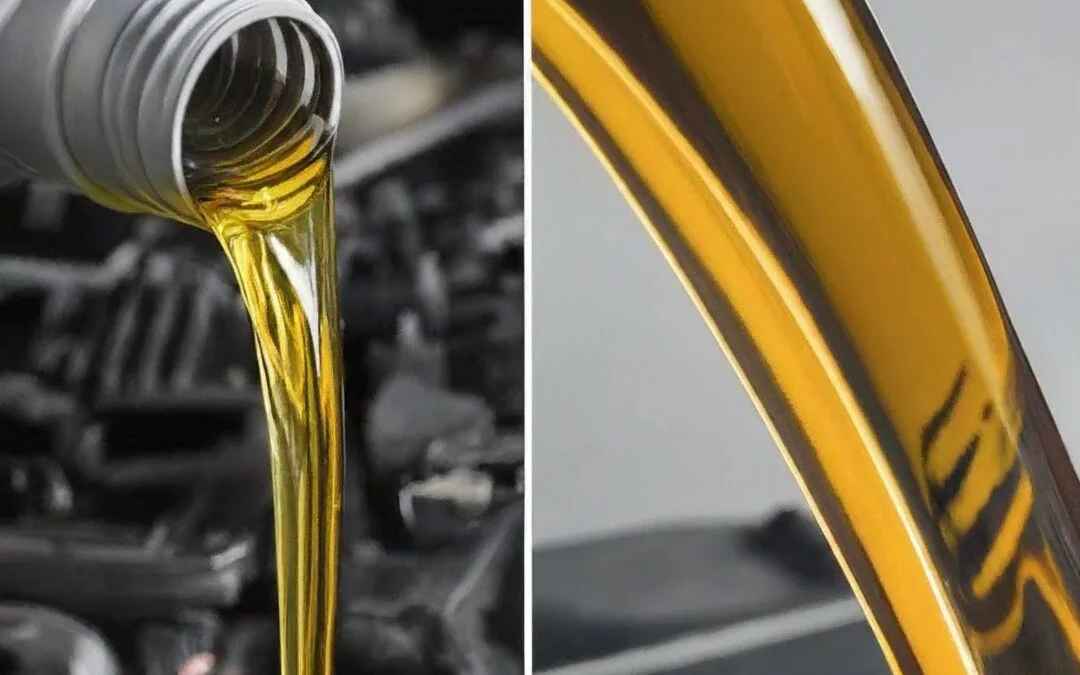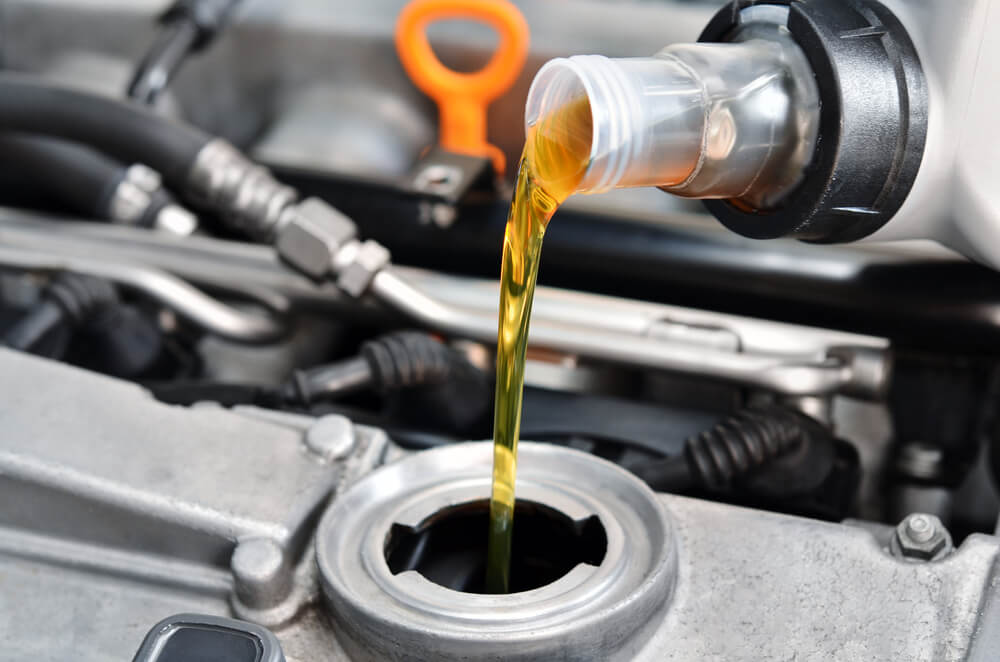Title: What to Do When Your Car Oil Smells Like Gas: Causes and Solutions
Introduction
“Have you ever detected an unusual scent wafting from your car’s engine oil? If that smell resembles gasoline, it could signal potential trouble under the hood. Ignoring this issue can lead to serious engine damage and compromise your vehicle’s performance. In this comprehensive guide, we’ll delve into the reasons behind a gasoline odor in your car’s oil and provide actionable steps to diagnose, address, and prevent further complications. Let’s navigate through the nuances of automotive maintenance and keep your ride running smoothly.
Why does car oil smell like gas
When car oil smells like gas , it’s a red flag signaling potential issues within your vehicle’s engine. This unusual scent could stem from several underlying causes, each requiring prompt attention to prevent further damage.
One possible reason for this odor is fuel contamination. If excess fuel bypasses the piston rings during combustion, it can seep into the crankcase and mix with the engine oil. This contamination not only dilutes the oil’s lubricating properties but also compromises its ability to protect crucial engine components.
Another culprit could be a faulty fuel injector. When a fuel injector fails to atomize fuel properly, it can result in unburned fuel entering the oil pan, leading to the gasoline smell. Additionally, a leaking fuel injector can allow fuel to seep into the combustion chamber during engine downtime, exacerbating the issue.
Furthermore, worn piston rings or cylinder walls can contribute to the problem. As these components degrade over time, they may fail to seal the combustion chamber effectively, allowing fuel to leak into the crankcase and mix with the oil.
In some cases, a rich fuel mixture or incomplete combustion can lead to fuel accumulation in the oil. This can occur due to a malfunctioning oxygen sensor, a clogged air filter, or issues with the engine’s ignition system.
Regardless of the cause, addressing a gasoline smell in your car’s oil is paramount to safeguarding your engine’s health and performance. Ignoring this issue can lead to accelerated wear and tear, reduced fuel efficiency, and even catastrophic engine failure.
To diagnose the root cause of the problem, it’s advisable to consult a qualified mechanic who can conduct a thorough inspection and perform any necessary repairs or replacements. Regular maintenance, including oil changes and fuel system checks, can also help prevent this issue from occurring in the future.
In conclusion, a gasoline odor in your car’s oil warrants immediate attention and investigation. By understanding the potential causes and taking proactive measures, you can ensure your vehicle remains in optimal condition and prolong its lifespan on the road.
Sign and symptom
When your car’s oil emits a distinct smell of gasoline, it’s crucial to recognize the signs and symptoms indicating potential issues within your vehicle. Here are some key indicators to be aware of:
- Strong Gasoline Odor: One of the most obvious signs is a noticeable smell of gasoline coming from your car’s oil dipstick or oil filler cap. This distinct odor is often a clear indication of fuel contamination in the engine oil.
- Discolored Oil: Gasoline contamination can cause the engine oil to appear lighter or thinner than usual. It may take on a milky or caramel-like color, indicating the presence of fuel mixed with the oil.
- Decreased Oil Level: If you notice a sudden drop in your car’s oil level without any visible signs of leaks, it could be a result of gasoline dilution. Fuel mixing with the engine oil can cause the oil level to rise, leading to overfilling, or it may evaporate due to increased volatility.
- Engine Performance Issues: Gasoline-contaminated oil can compromise engine performance. You may experience rough idling, misfires, reduced power, or hesitation during acceleration. These symptoms occur as a result of poor lubrication and combustion inefficiency.
- Increased Fuel Consumption: Fuel contamination can affect fuel efficiency as well. If your car’s oil smells like gas, it may be burning excess fuel, leading to higher fuel consumption and reduced mileage.
- Check Engine Light: In some cases, a gasoline smell in the oil can trigger the check engine light to illuminate on your dashboard. This warning sign indicates that the engine management system has detected a fault related to fuel mixture or combustion issues.
- Excessive Exhaust Smoke: Gasoline-contaminated oil can produce excessive exhaust smoke, often appearing bluish or grayish in color. This smoke results from burning oil mixed with fuel, indicating potential internal engine problems.
If you notice any of these signs or symptoms, it’s essential to address the issue promptly to prevent further damage to your vehicle’s engine. Ignoring a gasoline smell in your car’s oil can lead to accelerated wear and tear, decreased engine performance, and costly repairs down the line.
Consulting a qualified mechanic for a thorough inspection and diagnosis is recommended to identify the root cause of the problem. Prompt action and proper maintenance are key to ensuring the longevity and reliability of your vehicle.
Risk of ignoring the problem
Ignoring a gasoline smell emanating from your car’s oil can pose significant risks to both your vehicle and your safety on the road. Here’s why addressing this issue promptly is crucial:
- Engine Damage: Gasoline contamination compromises the lubricating properties of the engine oil, leading to increased friction and wear on crucial engine components. Over time, this can result in irreversible damage to the piston rings, cylinder walls, bearings, and other internal parts, potentially necessitating expensive repairs or even engine replacement.
- Reduced Performance: Contaminated oil diminishes the engine’s ability to operate efficiently. You may experience reduced power, rough idling, hesitation during acceleration, and overall diminished performance. This not only compromises your driving experience but also increases fuel consumption and emissions.
- Safety Hazards: A gasoline smell in the oil can indicate potential safety hazards, such as increased risk of engine fires or explosions. Fuel contamination may lead to overheating and ignition of oil vapors within the engine, posing a serious threat to vehicle occupants and nearby pedestrians.
- Environmental Impact: Burning gasoline-contaminated oil produces harmful emissions and pollutants that contribute to air pollution and environmental degradation. Ignoring the problem not only harms your vehicle but also exacerbates the ecological footprint of your car’s operation.
- Voided Warranties: Neglecting to address engine-related issues, including gasoline contamination, may void manufacturer warranties and vehicle protection plans. Failing to adhere to recommended maintenance schedules and addressing potential problems promptly could leave you responsible for costly repairs out of pocket.
- Costly Repairs: Delaying repairs or maintenance associated with gasoline-contaminated oil can lead to more extensive damage over time. What might initially require a simple fix could escalate into a major engine overhaul or replacement, resulting in significantly higher repair costs.
- Breakdowns and Stranded Situations: Ignoring warning signs and continuing to drive with gasoline-contaminated oil increases the likelihood of sudden breakdowns and roadside emergencies. Being stranded on the road not only inconveniences you but also poses safety risks and may incur towing expenses.
In summary, overlooking the presence of gasoline in your car’s oil can have dire consequences for your vehicle’s longevity, performance, safety, and environmental impact. Addressing the issue promptly through proper diagnosis and repair is essential to mitigate risks and ensure the continued reliability of your vehicle. Don’t gamble with your car’s health – take action to safeguard your investment and well-being on the road.
Financial implication
Ignoring the smell of gasoline in your car’s oil can have significant financial implications, both in the short and long term. Here’s how neglecting this issue can impact your finances:
- Increased Maintenance Costs: Gasoline contamination compromises the effectiveness of engine oil, leading to accelerated wear and tear on critical engine components. Over time, this can result in the need for more frequent oil changes, engine flushes, and repairs to address damage caused by poor lubrication. These additional maintenance expenses can quickly add up, draining your wallet unnecessarily.
- Expensive Repairs: Failure to address gasoline contamination promptly can lead to more severe engine damage, necessitating costly repairs or even engine replacement. Repairing or replacing damaged components such as piston rings, bearings, or cylinder walls can be significantly more expensive than addressing the initial issue early on. Delaying repairs may also result in collateral damage to other engine parts, further increasing repair costs.
- Decreased Resale Value: A car with a history of neglected maintenance and engine problems, such as gasoline contamination, is likely to have a lower resale value. Potential buyers may be wary of purchasing a vehicle with known mechanical issues, leading to decreased demand and a lower selling price. Addressing the problem promptly can help preserve your car’s resale value and attract potential buyers willing to pay a higher price.
- Voided Warranties: Ignoring engine-related issues, including gasoline contamination, may void manufacturer warranties or extended warranty coverage. Most warranties require regular maintenance and prompt repairs to remain valid. Failing to adhere to these requirements could leave you responsible for covering repair costs that would otherwise be covered under warranty, resulting in unexpected expenses.
- Emergency Expenses: Ignoring warning signs of gasoline contamination increases the risk of sudden breakdowns and roadside emergencies. In addition to the inconvenience of being stranded, emergency repairs conducted outside of regular maintenance schedules often come with premium costs for towing, roadside assistance, and expedited repairs. These unexpected expenses can strain your budget and disrupt your financial plans.
Long-Term Depreciation: Neglecting maintenance and repairs can accelerate the depreciation of your vehicle over time. A car with a history of mechanical issues is likely to depreciate faster than a well-maintained vehicle. By addressing gasoline contamination and other maintenance issues promptly, you can help slow the rate of depreciation and preserve the value of your investment
Troubleshooting & Solution
When your car’s oil smells like gas, it’s essential to troubleshoot the issue promptly to prevent further damage to your vehicle’s engine. Here’s a step-by-step guide to troubleshooting the problem and finding a solution:
- Confirm the Smell: First, verify that the odor is indeed coming from your car’s oil. Remove the oil dipstick or open the oil filler cap and take a whiff. If you detect a strong smell of gasoline, proceed with troubleshooting.
- Check for Contamination: Inspect the engine oil for signs of contamination. Look for a lighter color or thin consistency, which may indicate the presence of gasoline mixed with the oil. Additionally, check the oil level to see if it has risen due to fuel dilution.
- Inspect Fuel System Components: Examine the fuel system components, such as fuel injectors, fuel lines, and fuel pressure regulator, for leaks or malfunctions. A leaking fuel injector or fuel line could allow gasoline to enter the oil system, causing the odor.
- Test the Fuel Pressure: Use a fuel pressure gauge to check the fuel pressure in the system. Low fuel pressure could indicate a faulty fuel pressure regulator or a clogged fuel filter, both of which can contribute to fuel contamination.
- Check the PCV System: Inspect the Positive Crankcase Ventilation (PCV) system for clogs or malfunctions. A blocked PCV valve can cause pressure buildup in the crankcase, leading to oil leaks and fuel contamination.
- Inspect Engine Components: Examine the piston rings, cylinder walls, and other engine components for wear or damage. Worn piston rings or cylinder walls can allow gasoline to bypass into the crankcase, leading to fuel contamination.
- Replace the Engine Oil: If gasoline contamination is confirmed, drain and replace the engine oil and oil filter with fresh ones. Be sure to dispose of the contaminated oil properly according to local regulations.
- Address the Root Cause: Once the oil has been replaced, address the root cause of the gasoline smell. Depending on the diagnosis, this may involve repairing or replacing faulty fuel system components, cleaning or replacing the PCV valve, or conducting engine repairs.
- Monitor for Recurrence: After addressing the issue, monitor the engine oil and fuel system for any signs of recurrence. Regularly check the oil level, color, and consistency, and be alert for any unusual smells or performance issues.
- Seek Professional Help if Needed: If you’re unable to identify or resolve the problem on your own, seek assistance from a qualified mechanic or automotive technician. They can perform a thorough diagnosis and recommend appropriate repairs to address the issue effectively.
By following these troubleshooting steps and taking proactive measures to address the root cause, you can resolve the gasoline smell in your car’s oil and ensure the continued health and performance of your vehicle’s engine.
Preventive measure
Preventing your car’s oil from smelling like gas involves proactive maintenance and regular inspections to identify and address potential issues before they escalate. Here are some preventive measures you can take to keep your engine running smoothly:
- Follow Regular Maintenance Schedule: Adhere to the manufacturer’s recommended maintenance schedule for oil changes, filter replacements, and tune-ups. Regular maintenance helps ensure that your engine operates efficiently and reduces the risk of fuel contamination.
- Use High-Quality Fuel: Fill up your tank with high-quality gasoline from reputable gas stations. Low-quality fuel or fuel contaminated with water or debris can increase the likelihood of fuel system problems and gasoline smell in the oil.
- Replace Fuel Filters: Replace the fuel filter at regular intervals as recommended by your vehicle manufacturer. A clogged or dirty fuel filter can restrict fuel flow, leading to fuel system issues and potential fuel contamination.
- Inspect Fuel System Components: Regularly inspect fuel system components such as fuel injectors, fuel lines, and fuel pressure regulator for leaks, cracks, or signs of wear. Address any issues promptly to prevent fuel from entering the oil system.
- Check PCV System: Inspect the Positive Crankcase Ventilation (PCV) system for clogs or malfunctions. Replace the PCV valve and clean the system as needed to ensure proper ventilation and prevent pressure buildup in the crankcase.
- Monitor Engine Performance: Pay attention to changes in engine performance, such as rough idling, hesitation, or reduced power. These symptoms could indicate fuel system problems or fuel contamination and should be addressed promptly.
- Perform Oil Analysis: Consider performing periodic oil analysis to monitor the condition of your engine oil and detect any signs of contamination or abnormal wear. Oil analysis can provide valuable insights into the health of your engine and help identify potential issues early on.
- Drive Responsibly: Avoid aggressive driving habits such as excessive speeding, rapid acceleration, and hard braking, which can put added stress on your engine and fuel system. Driving responsibly can help prolong the life of your vehicle and reduce the risk of mechanical problems.
- Store Fuel Properly: If you store gasoline for extended periods, use appropriate containers and store them in a cool, dry place away from direct sunlight and heat sources. Proper storage helps maintain fuel quality and reduces the risk of contamination.
- Seek Professional Inspection: If you notice any unusual smells, performance issues, or warning signs related to your vehicle’s fuel system or engine oil, seek professional inspection and diagnosis from a qualified mechanic or automotive technician.
By following these preventive measures and staying proactive about maintenance and inspections, you can reduce the risk of your car’s oil smelling like gas and ensure the continued reliability and performance of your vehicle’s engine.
Conclusion
In conclusion, when you detect a gasoline smell emanating from your car’s motor oil, swift action is paramount. Ignoring this issue can lead to serious consequences, including engine damage, decreased performance, and safety hazards. By promptly troubleshooting the problem, identifying the root cause, and taking appropriate preventive measures, you can safeguard your vehicle’s engine and ensure its continued reliability on the road. Whether it involves inspecting fuel system components, replacing contaminated oil, or seeking professional assistance, addressing the issue proactively is key to maintaining your car’s health and longevity. Remember, prioritizing regular maintenance and staying vigilant for warning signs can help prevent gasoline contamination and keep your engine running smoothly for miles to come.
Useful link
FAQ about when car oil smells like gas
Q: What does it mean if my car’s oil smells like gas?
A: A gasoline smell in your car’s oil indicates potential issues within the engine, such as fuel contamination or combustion problems.
Q: Is it safe to drive my car if the oil smells like gas?
A: It’s not recommended to drive your car if you detect a strong gasoline smell in the oil. Continuing to drive could exacerbate the problem and lead to engine damage or safety hazards.
Q: What causes gasoline to mix with the engine oil?
A: Gasoline can enter the engine oil due to various reasons, including fuel system leaks, faulty fuel injectors, worn piston rings, incomplete combustion, or a malfunctioning Positive Crankcase Ventilation (PCV) system.
Q: How can I diagnose the source of the gasoline smell in my car’s oil?
A: Diagnosing the problem may involve inspecting fuel system components, checking for leaks, testing fuel pressure, examining engine components for wear, and conducting oil analysis.
Q: What should I do if my car’s oil smells like gas?
A: If you detect a gasoline smell in your car’s oil, it’s important to address the issue promptly. Replace the contaminated oil, investigate the root cause of the problem, and consider seeking professional assistance if needed.
Q: Can I fix the issue myself, or do I need to take my car to a mechanic?
A: Depending on the severity of the problem and your mechanical expertise, you may be able to address some issues yourself, such as replacing contaminated oil or cleaning the PCV system. However, complex repairs or diagnosis may require the expertise of a qualified mechanic.
Q: How can I prevent my car’s oil from smelling like gas in the future?
A: Preventive measures include following a regular maintenance schedule, using high-quality fuel, inspecting fuel system components, monitoring engine performance, and storing fuel properly. Regular maintenance and proactive inspections can help prevent gasoline contamination and ensure the continued health of your engine.




Leave a Reply